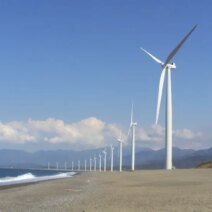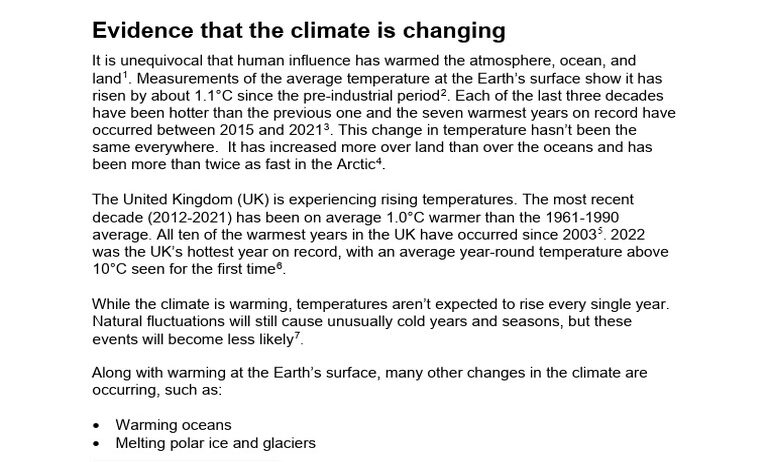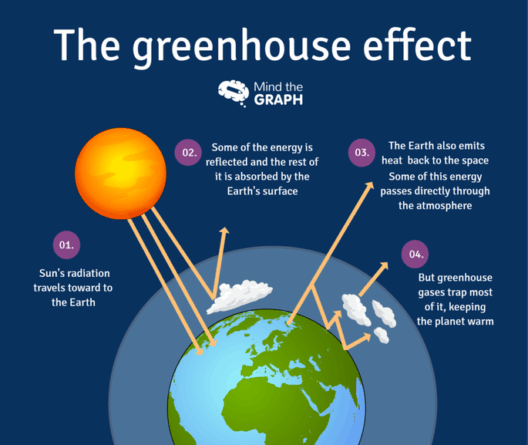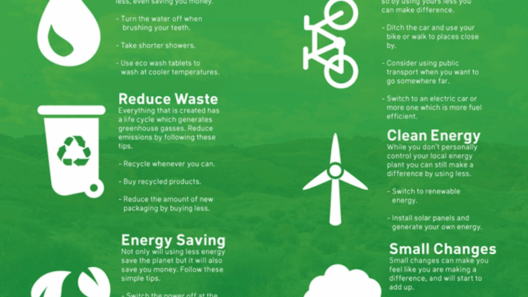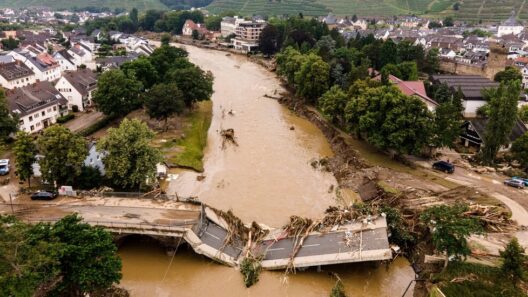Understanding the multifaceted implications of climate change is essential as its impact permeates nearly every aspect of our planet and society. The discourse around climate change often focuses on its immediate effects, such as rising temperatures and extreme weather events. However, it is crucial to delve deeper into the comprehensive impacts that extend far beyond these noticeable phenomena. This exploration will unveil how climate change affects ecosystems, weather phenomena, human health, economies, and more.
The Narrative of Ecosystems
Climate change weaves a complex narrative, deeply influencing both terrestrial and aquatic ecosystems. Alterations in temperature and precipitation patterns disrupt long-standing ecological balances. For instance, numerous species find themselves in a precarious predicament as their habitats shift, or diminishes, necessitating migration to more hospitable environments. This shift creates an intricate web of consequences, impacting food webs and interspecies relationships.
Consider the polar regions, which are often highlighted as dramatic examples of change. As glaciers melt and sea ice diminishes, polar bears and seals are forced to adapt to an unfamiliar reality. The decline in ice drastically limits their hunting grounds, leading to decreased populations and altering predator-prey dynamics. Meanwhile, species that thrive in warmer conditions, such as krill, proliferate, leading to a cascading effect throughout the food chain.
Coral reefs exemplify another ecosystem at risk. These magnificent structures, often dubbed the “rainforests of the sea,” are incredibly sensitive to thermal variations. Increasing sea temperatures lead to coral bleaching—a phenomenon where corals expel the algae living in their tissues—causing them to lose their vibrant colors and, worse, their nutritional source. The degradation of coral reefs not only threatens marine biodiversity but also jeopardizes coastal communities that rely on them for fisheries and tourism.
Weather Patterns Unraveled
Climate change is perhaps most vividly illustrated through its alteration of weather patterns. While weather and climate are not synonymous, the former is profoundly affected by the latter. The frequency and intensity of extreme weather events, such as hurricanes, droughts, and floods, have surged in recent years, posing severe risks to both human populations and natural environments.
The consequences of these weather anomalies are far-reaching. As the climate warms, the atmosphere retains more moisture, leading to heavier rainfall and more severe flooding in some regions. Conversely, others may experience debilitating droughts. This inconsistency wreaks havoc on agriculture, threatening food security as crop yields falter under unexpected climatic stresses. Farmers must contend with unpredictable growing seasons, increasing reliance on irrigation, or, worse, complete crop failures.
The human experience is severely impacted by these changes in weather patterns. Communities are displaced by the relentless onslaught of climate-related disasters, and infrastructure struggles to cope. The economic ramifications are staggering, with insurance claims skyrocketing and recovery efforts often hampered by the scale of destruction. Thus, understanding how climate change reshapes our weather patterns reveals its central role in exacerbating societal vulnerabilities.
Public Health Teetering on the Brink
The intersection of climate change and public health heralds emerging challenges that are perhaps less visible than the physical manifestations of environmental change. As the planet warms, the proliferation of vector-borne diseases is a pressing concern. Warmer temperatures create hospitable environments for mosquitoes, ticks, and other disease carriers, expanding the geographical range of diseases such as malaria and Lyme disease.
Air quality suffers under the specter of climate change, as exacerbated air pollution leads to increased respiratory ailments. Heatwaves, increasingly common and severe, pose direct threats to human life, particularly among vulnerable populations such as the elderly and those with pre-existing health conditions. The psychological effects of climate change also warrant attention, with a growing body of research indicating a rise in mental health disorders linked to climate-induced displacement and anxiety over an uncertain future.
The Economic Consequences Escalate
Every facet of climate change is intrinsically linked to economic stability and growth. As natural resources dwindle and environmental degradation accelerates, the costs associated with mitigation and adaptation escalate. Industries dependent on stable climates—agriculture, fisheries, and tourism—face substantial risks that threaten job security and livelihoods.
Investment strategies are also under scrutiny as businesses acknowledge the long-term implications of climate risk. Financial markets are beginning to integrate climate-related factors into their assessments, leading to an evolving landscape of investment opportunities and challenges. The transition towards sustainable practices presents both opportunities for innovation and risks associated with adaptation costs.
However, not all impacts are negative. The renewable energy sector has flourished in response to the growing urgency of climate change. Innovations in technology and infrastructure have created jobs and stimulated economic growth, illustrating the potential for a green transition to also yield substantial benefits.
In Conclusion
The ramifications of climate change enshroud our world in intricate complexities, affecting ecosystems, weather patterns, public health, and economic stability. Understanding these interconnections is crucial for fostering resilient communities equipped to combat climate change’s far-reaching impacts. By elucidating the full spectrum of these effects, we can begin to grasp the immediacy and gravity of the challenge at hand, igniting collective action towards a sustainable future.


